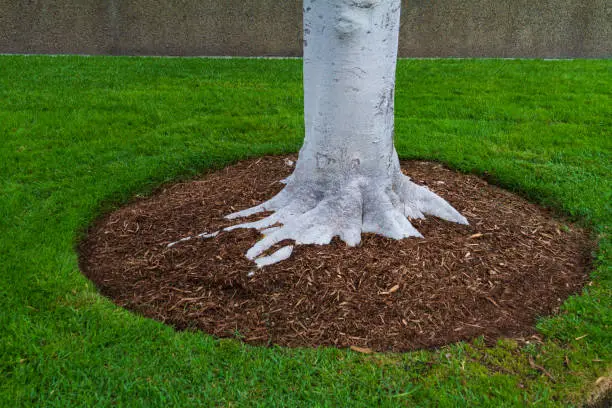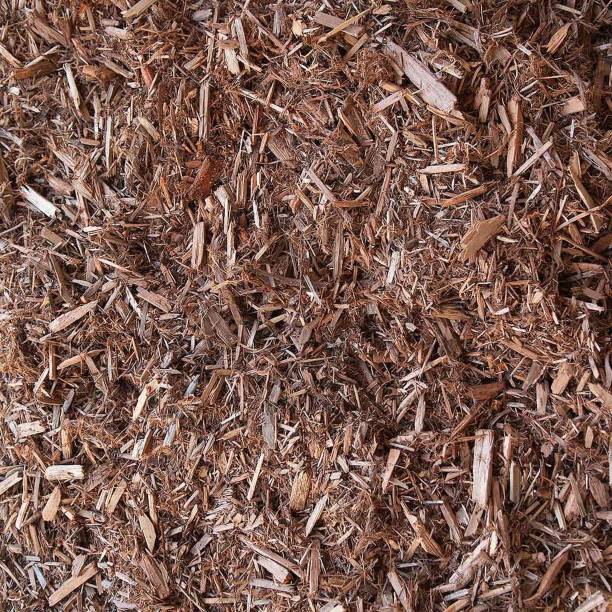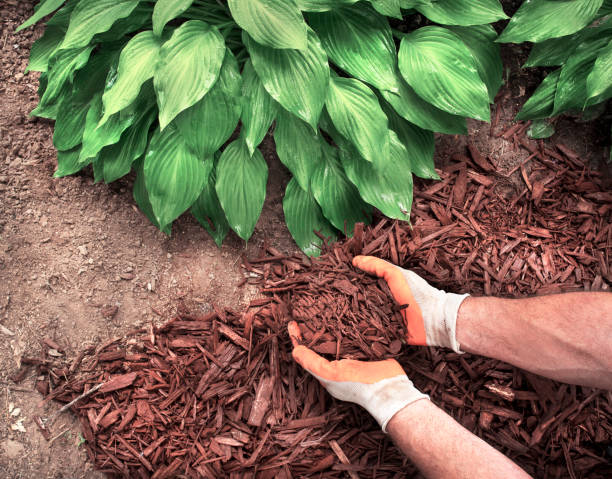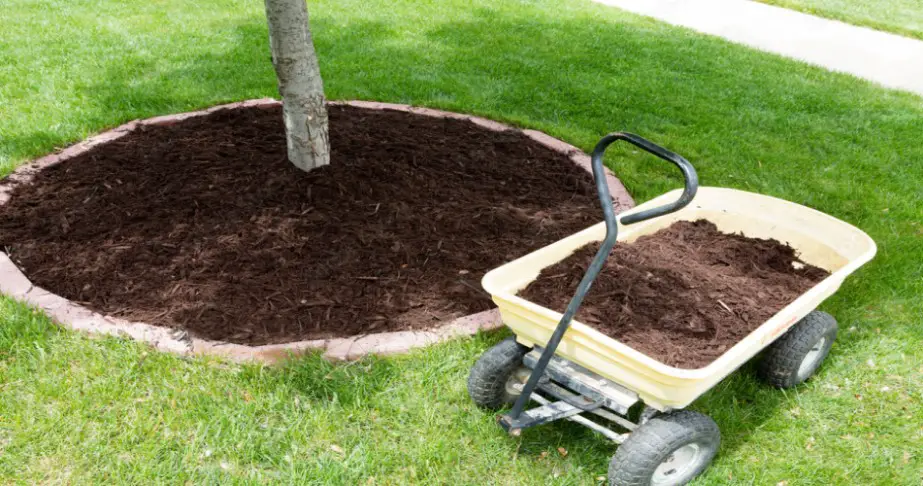When it comes to growing healthy and fruitful trees, mulching plays a vital role.
Not only does it enhance the aesthetic appeal of your garden, but it also offers numerous benefits to the overall health and productivity of fruit trees.
Mulch acts as a protective blanket, shielding the roots from extreme temperatures, conserving moisture, and suppressing weeds.
But with a wide array of mulch options available, it’s important to delve deeper and explore the specific benefits and considerations for each type.
In this blog post, we focus our attention on cedar mulch and its potential impact on fruit trees.
Is Cedar Mulch Good for Fruit Trees?
Yes, cedar mulch can be highly beneficial for fruit trees.
Its unique properties and characteristics make it a suitable choice for enhancing the health and productivity of fruit trees.
It’s a type of organic mulch derived from cedar trees. Known for its natural properties and aromatic scent, cedar mulch offers unique advantages for fruit trees.
Composed of finely shredded cedar bark and wood, it provides a visually appealing layer while serving various functional purposes.
It possesses distinct characteristics that make it worth considering for your fruit trees compared to other commonly used mulch types.
6 Key Reasons Why Cedar Mulch is Good for Fruit Trees

1. Moisture Retention
Cedar mulch acts as a natural moisture barrier, helping to conserve water and reduce evaporation from the soil surrounding fruit trees.
Retaining moisture, it ensures that the tree’s roots receive a steady water supply, promoting healthy growth.
It also acts as an insulator, regulating soil temperature and protecting the roots from extreme heat or cold.
2. Weed Suppression
Weeds can compete with fruit trees for vital resources such as water, nutrients, and sunlight.
Cedar mulch forms a protective layer, acting as a natural weed barrier, and reducing weed growth.
By suppressing weed growth, it minimizes competition, allowing your fruit trees to thrive without unnecessary hindrance.
Related: Hemlock vs. Pine Mulch: Side-by-Side Comparison
3. Pest Control
Cedar possesses natural insect-repelling properties, making cedar mulch an effective deterrent against pests that may harm fruit trees.
The aromatic oils found in cedar also act as a natural fungicide, potentially reducing the incidence of fungal diseases.
Using cedar mulch can help create a protective barrier, keeping pests and diseases at bay.
4. Organic Matter Enrichment
As cedar mulch decomposes slowly over time, it enriches the soil with organic matter. This decomposition process enhances soil structure and fertility, and promotes beneficial microbial activity.
By improving soil health, cedar mulch contributes to the overall vitality and productivity of fruit trees.
5. Erosion Control
Cedar mulch forms a protective layer that helps prevent soil erosion, especially in sloped areas. It acts as a barrier, reducing the impact of heavy rain and wind on the soil surface.
By stabilizing the soil, it helps maintain a consistent growing environment for fruit trees, ensuring their roots remain secure and protected.
6. Aesthetic Appeal
In addition to its functional benefits, cedar mulch adds an attractive and natural aesthetic to your garden. Its warm color and pleasant aroma create a visually pleasing environment.
Using cedar mulch around fruit trees can enhance the overall appearance of your garden and contribute to a visually appealing landscape.
Related: 10 Best Places Where to Buy Roof Gravel
Potential Drawbacks of Using Cedar Mulch for Fruit Trees

While cedar mulch offers numerous benefits, it’s important to consider certain factors before applying it around your trees.
Impact on Soil pH
Cedar mulch has a slightly acidic pH, which can gradually alter the soil’s acidity level.
It’s crucial to monitor your soil pH and make adjustments if necessary, ensuring it remains within the optimal range for your fruit trees.
Nitrogen Depletion
During the decomposition process, cedar mulch can temporarily tie up nitrogen in the soil, potentially affecting the nutrient availability for fruit trees.
You can supplement with appropriate fertilization to compensate for any nitrogen depletion and maintain a healthy nutrient balance.
Related: 8 Best Mulches for Citrus Trees in Pots
Potential Allergic Reactions
Some individuals may have allergic reactions or respiratory sensitivities to cedar. It’s important to be aware of potential health concerns and take necessary precautions, such as wearing protective gear, if you’re sensitive to cedar.
Availability, Cost, and Sustainability
The availability and cost of cedar mulch can vary depending on your location. Consider the availability of the mulch in your area and assess its affordability.
For eco-conscious gardeners, sustainable sourcing and alternative mulch options should also be considered.
Decomposition Rate
Cedar mulch decomposes at a slower rate compared to some other mulch types.
While this is beneficial for long-term organic matter enrichment, it also means that the mulch layer may require less frequent renewal.
Monitor the mulch thickness and replenish it as needed to maintain the desired depth for optimal benefits.
Balancing the decomposition rate and renewal frequency ensures continuous mulch effectiveness for fruit trees.
Related: Ultimate Guide: How to Use Lava Rocks for Plants
How to Effectively Use Cedar Mulch for Your Fruit Trees

Follow these guidelines to maximize the benefits of the mulch for your fruit trees.
Proper Application Techniques
Apply cedar mulch in a layer around the base of the fruit tree, ensuring it doesn’t touch the trunk.
A thickness of 2-4 inches is generally recommended, striking a balance between weed suppression, moisture retention, and nutrient absorption.
Mulching Around the Base of Fruit Trees
Create a circular mulch bed around the base of the tree, leaving a small gap near the trunk to prevent moisture buildup and potential rot.
Avoid piling mulch against the trunk, as it can create a breeding ground for pests and diseases.
Seasonal Considerations
Monitor the mulch layer regularly to ensure it remains at the desired depth.
Over time, as the mulch decomposes, replenish it as needed to maintain the recommended thickness.
You may need to adjust the mulch depth to provide extra insulation for the roots during the winter months.
Related
- Best Gravels to Walk on Bare Feet
- 10 Best Mulch for Wet Areas
- Top 10 Wholesale Mulch Suppliers
- Top 7 Disadvantages of Decomposed Granite
- Gorilla Hair Mulch Pros and Cons
- Best Mulch for Perennials
- Grass Mulching Pros and Cons
- Hemlock vs Fir Mulch: A Comprehensive Comparison Guide
- Hemlock vs. Pine Mulch: Side-by-Side Comparison


